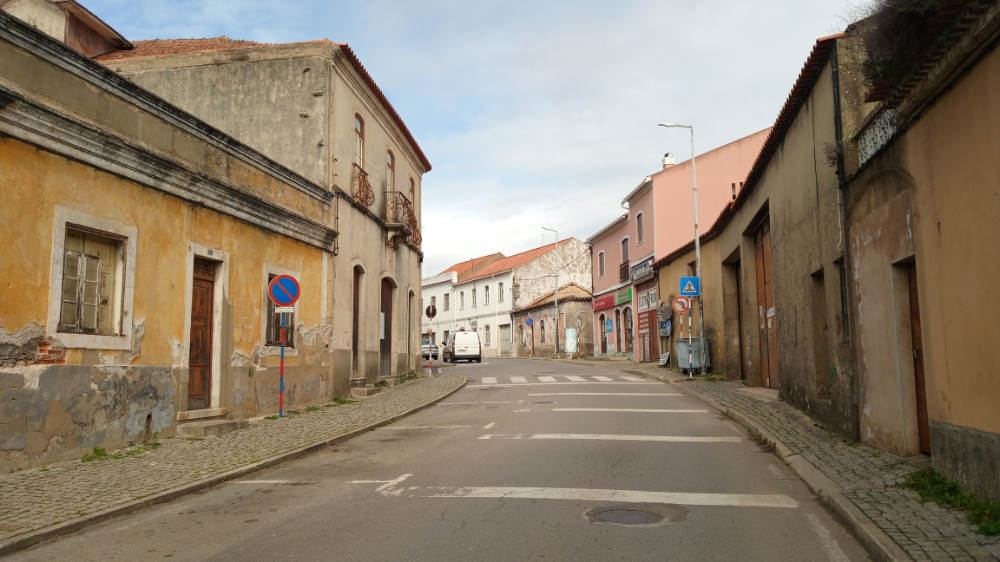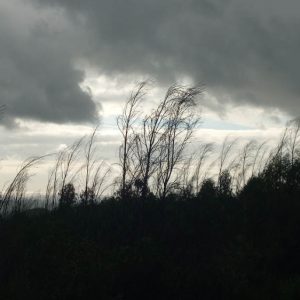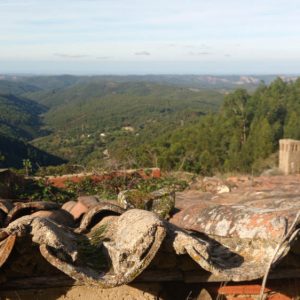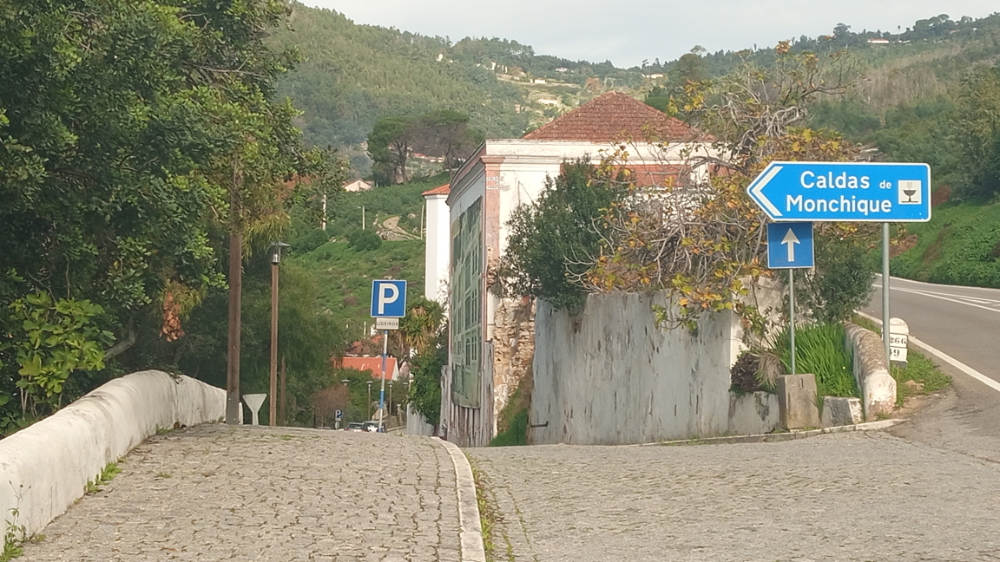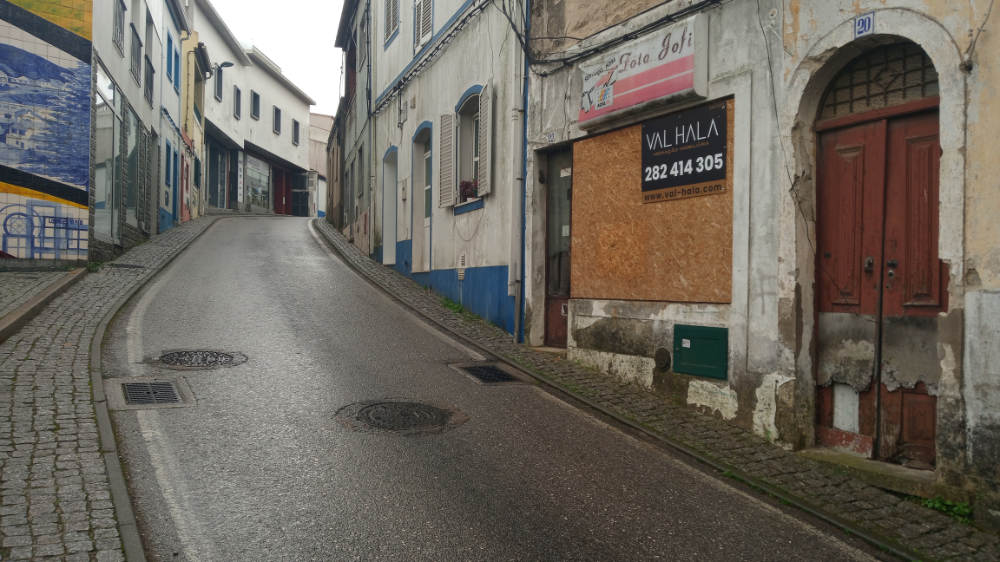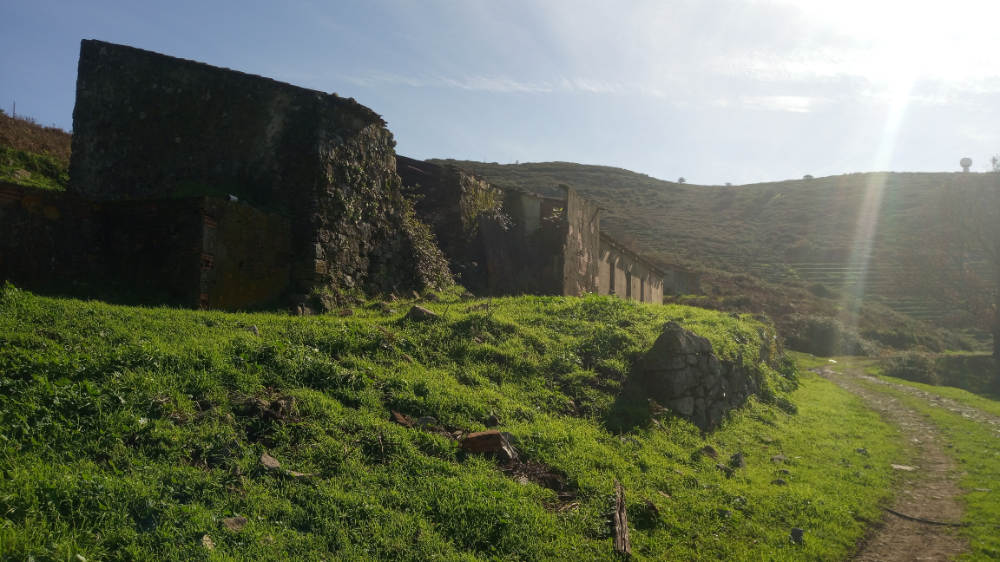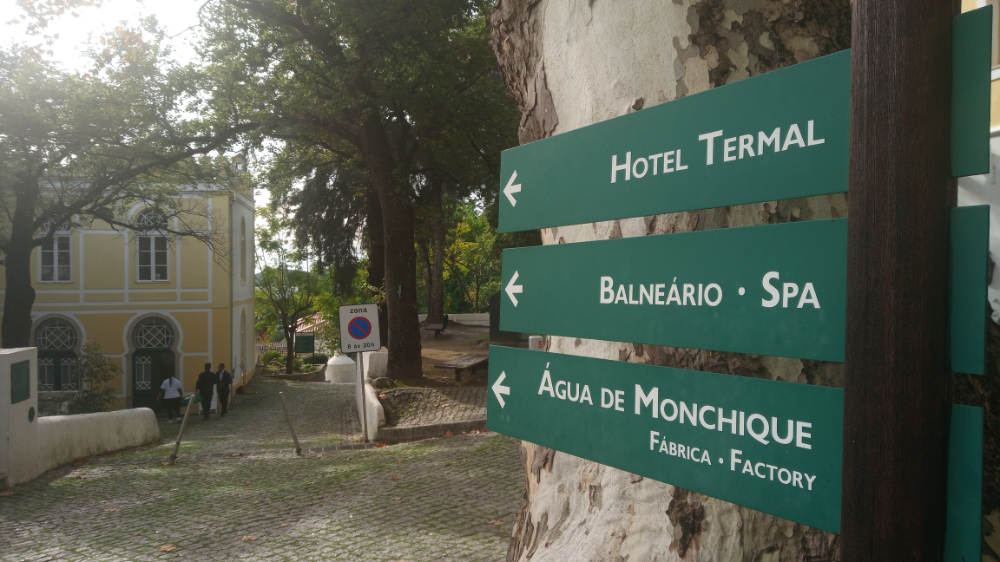Saturday 3rd December 2022.
So these days Monchique is hosting a walking festival. In the run-up to the event, a lavish publicity campaign was already announcing, in several languages “hikes along the waterways, workshops, shows and talks”. This all sounds like relaxation, harmony, tourism in touch with nature. By the looks of it, a major event with plenty of foreign visitors might be in store. I’m one of those foreign visitors. I’ve been coming here for years, and have friends here that I like to visit. If it wasn’t for them I would probably choose different destinations – because I can see how this region is changing, how it is slowly, yes, dying, in the full sense of the word.
In 1960 the entire council of Monchique counted nearly 15,000 inhabitants. Today, some 50 years, or two generations later, the population of the region is down to just over 5,000 residents. It has shrunk by two thirds. This process is plain to see. My first visit here was in 2016. Since then several of the small traders have closed up shop, for lack of turnover or suitable successors. Blind windows, doors nailed shut, roofs caving in, ruins wherever you look. Entire streets are depopulated. Strolling through Monchique today, I see a ghost town. On something like that, words gets around, not least amongst tourists.
A similar picture emerges on hikes in the wider surroundings: abandoned houses, terraced lands lying fallow, and eucalyptus, eucalyptus everywhere. A species of tree native to Australia and Indonesia, by no stretch of the imagination here on the Algarve, even if some locals might be led to believe that. A species of tree that was and continues to be planted here as a monoculture. In the long run, monocultures destroy the soils, the entire nature. Farmers know that, or should know that. Let’s just consider the cultivation of soy in Brazil for instance where more rainforest is cleared every year, for after a few years soils used for intensive cultivation produce hardly any yield. With eucalyptus the additional problem is that this wood burns particularly well. Everywhere dead charred trees serve as a reminder of the last devastating fire of 2018. Which brings me back to the hiking extravaganza promoted in shining colours:
What I am asking myself is how hiking through burnt woodlands can possibly be a pleasure? I see how thousands of young eucalyptus trees reach for the sky using the charred tree carcasses for support. In Italy and North Africa eucalyptus trees are planted to dry out swamps, making use of their thirst for water. Here, they are depleting the soil of enormous amounts of nutrients and water. The fact that the lack of water last summer across the entire region surrounding Monchique is also due to the invasive spread of eucalyptus is plain to see. Never before had so many springs and brooks run dry. And now we’re supposed to be hiking “along the waterways” of all things? How long will these waterways even be around? When I first came to this area the numerous springs here had me all excited. I was drinking the clear soft water from my cupped hands. This year I had to buy water from the supermarket. Word does get around on something like that, not least among tourists.
In 2018 my friends had to experience that neither the fire brigade nor the civil protection units are able to protect their houses and their lives. The forest surrounding Monchique will burn again, the only question is when. I don’t feel safe around here anymore. On that issue too word gets around amongst tourists. Neither the authorities nor the near exclusively private owners of the eucalyptus plantations can carry on pretending everything is fine. Without fundamental changes tourism business here will not carry on for much longer. What concept is there in place for the region’s future? Are there any plans for fighting the monocultures and reforesting with diverse species of trees that protect each other and sustain the water levels of the soil rather than destroying them? Instead I am reading about a programme offering financial support to forest owners in “tidying up” their eucalyptus stock, whatever that may mean. And what is the goal of this action? A higher yield, naturally. This won’t be the way to solving the problem of the forest fires and scarce water supplies.
Last not least, I note a widespread lack of understanding of what constitutes giving visitors good service. For example, in order to use the swimming pool I have to register with the authorities. A bureaucratic act I don’t understand and don’t want. Instead I’d much rather pay a contribution as it’s the custom all over the world. Where I do have to pay, for instance in the thermal baths of the “spa town” of Caldas de Monchique, prices are astronomically high considering what is on offer: two sauna cabins, one of them broken. One of the wooden planks of the bench has come loose, threatening to break in two shortly. Screws are raising their dangerous heads from the floor. In what passes for the relaxation room, a tiny windowless square tiled up to the hilt, a permanent whooshing noise, presumably emanating from some air-conditioning unit. The relaxation room „exudes the charm of an operating theatre”, in the words of a Canadian visitor. Two functionaries are staffing the reception, but none of them makes for instance infusions with healing essences as is the norm in saunas around the world, and well appreciated by guests. Add to that a myriad of unexplained rules. On the short way from the sauna through the corridor leading to the small pool, visitors have to temporarily wear a medical mask. Now this holds true ONLY in the corridor, nowhere else. Why? “We are a medical institution” declares the person in charge. “Completely irrational” in the words of a Portuguese visitor.
Those who’d like to eat well will have differing experiences. Truth be told, Monchique has one single restaurant worthy of the name, one that doesn’t just offer piri-piri chicken, fries and Coca-Cola. Prices however have risen enormously over the past few years. Who is it really that wants to holiday here? My impression is that this region needs no hiking festival requiring expensive organisation and publicity to breathe life back into the place. What the region does need is sustainable concepts for the local economy, affordable housing, a focus on the production of solar power to be able to produce the necessary power at affordable prices and with as much autonomy as possible. If we’re going to have a spectacle subsidised by the state, then let’s have that with the goal of inviting entrepreneurs with new ideas, so that artisans and craftspeople too might consider settling here in order to reinvigorate the location and its surroundings. Last not least the region needs sustainable forestry so forest fires might be avoided in the future, so locals and tourists feel safe again here, and the latter feel like they want to come back. On something like that word will definitely get around.
 Eco123 Revista da Economia e Ecologia
Eco123 Revista da Economia e Ecologia

